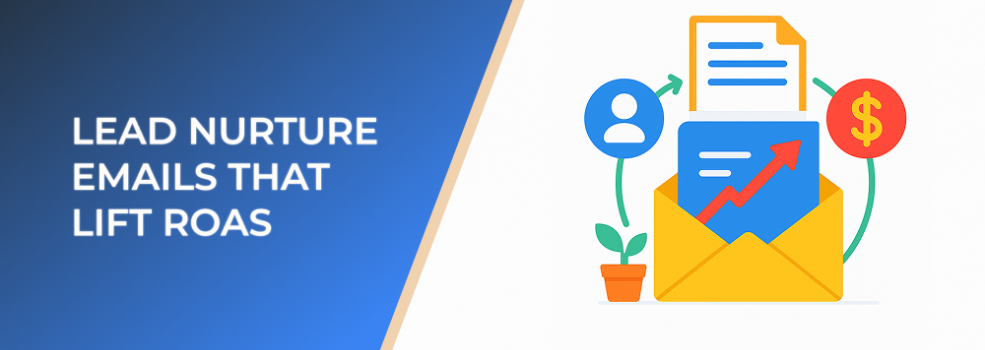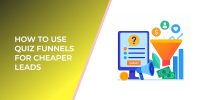Lead nurture isn’t separate from advertising performance. When your email sequences lift conversion rates, your ad spend instantly becomes more profitable.
Research shows that nurtured leads make 47% larger purchases compared to non-nurtured leads. Another study indicates that automated emails drive 320% more revenue than non-automated sends.

Automated email flows generate 320% more revenue than non-automated emails
Effective nurture sequences keep cold leads warm, accelerate decision-making, and reduce the cost per acquisition across your entire funnel.
Core Components of High-ROAS Nurture Emails
1. Behavior-Based Segmentation
Stop sending every subscriber the same message. Segment by:
-
Pages viewed
-
Products/categories visited
-
Ad funnel stage
-
Engagement level
Brands using advanced segmentation see up to 760% higher revenue from email campaigns.
2. Automated Drip Flows That Support the Funnel
Build flows that match the user’s intent:
-
Welcome series introducing value and proving credibility
-
Education flows teaching users how to solve the problem
-
Product nurture flows that highlight benefits and outcomes
-
Re-engagement flows for inactive users
Companies with structured drip sequences have shown up to 80% higher open rates compared to manual broadcasts.
3. Mixing Content Types to Maintain Attention
High-performing nurture flows rotate:
-
Quick tips or micro-guides
-
Case-like stories
-
Short videos
-
Feature highlights
-
Social proof elements
A study found that storytelling emails can increase click-through rates by up to 300%.
4. Clear Single-Action CTAs
Nurture emails shouldn’t overload the reader. The rule: one purpose per email.
Emails with a single CTA can increase clicks by 371% compared to emails with multiple competing actions.
5. Timing and Cadence
Sending too frequently reduces engagement, while sending too rarely makes leads forget who you are. A balanced cadence for nurture flows is typically:
-
Day 0–3: Higher frequency
-
After day 4: 1–2 emails weekly
Subscribers receiving 1–2 weekly emails show up to 40% higher engagement rates compared to daily campaigns.
High-ROAS Lead Nurture Flow Example
Below is a simple but powerful flow structure optimized for conversions:
Day 0 — Welcome & Proof
Introduce the brand’s core value, reinforce the pain point, share a fast-win tip.
Day 1 — Education & Friction Removal
Explain the problem-solving framework. Address common misconceptions.
Day 3 — Product Teaser
Highlight a key benefit using a simple example or before/after scenario.
Day 6 — Case Story or Social Proof
Show how others solved the same problem.
Day 10 — Re-Engagement Prompt
For non-openers and non-clickers, send a shorter reminder email.
Day 14 — CTA with Value Reminder
Summarize benefits and invite the user to act.
This structure lifts conversions by consistently warming the lead while keeping engagement high.
How Email Nurture Improves Ad Performance
Lead nurture emails create multiplier effects across your advertising funnel:
-
Increase lead quality over time
-
Raise conversion rate on retargeting audiences
-
Reduce CAC across campaigns
-
Improve LTV by educating users early

Nurtured leads spend on average 47% more than non-nurtured leads
When your nurture flow lifts conversions even slightly (example: +15–20%), ROAS increases across all paid channels.
Best Practices for High-Performing Nurture Emails
-
Keep the message short and skimmable
-
Personalize based on user actions
-
Use curiosity-driven subject lines
-
Add subtle but repeated value reminders
-
Maintain mobile-first structure
-
A/B test preheaders, CTA placement, and content type
Brands that A/B test their nurture campaigns generate up to 49% higher ROI.
Suggested Next Reads
Here are three articles that complement what you're learning:
-
How to Build High-Converting Ad Funnels
-
Retargeting Ads: Step-by-Step Guide
-
Email List Growth: Strategies That Actually Work

